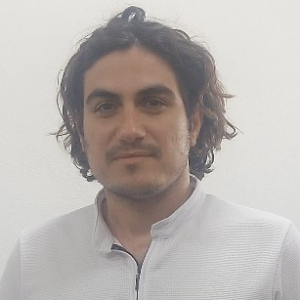Title : Ethyl methane sulfonate mutagen (EMS) studies in pepper (Capsicum Annuum l.) Breeding variety
Abstract:
Researchers are working on methods to increase production in order to meet the nutritional and food needs as a result of the gradual decrease of the plant resources in the world and the increase in the human population. Within the scope of the studies carried out under the name of the “Green Revolution”, the methods of obtaining more products from the unit area were investigated. The first of these methods is some cultural practices in existing varieties; A limited increase in yield and quality has been achieved through practices such as improving irrigation systems and methods, soil mechanization, fertilizing, and control of diseases and pests. The development of high quality varieties possible with the implementation of seed-based breeding studies, which are the genetic material of yield and quality in plants. Plant breeders benefit from the variations existing in nature and using new techniques and methods to develop new varieties. In the emergence of a new variety, the breeder can benefit from hybrid breeding, which is one of the classical breeding methods, and started to use the mutation breeding method, which is a new method used to obtain a new variety that shortens the long time and excessive labor in breeding period. Mutation can occur spontaneously in nature or it can be done by using chemical and physical mutagens. Mutations obtained artificially in nature occur with the effect of many physical such as various rays (Gamma ray, X-ray, Cobalt 60 etc.) or chemicals such as diethyl sulfate, sodium azide and ethyl metal sulfonate (EMS).
EMS is accepted as the most effective and common among chemical mutagens in mutation breeding, which is frequently used in the development of new varieties. EMS used in plants usually causes point mutations. The selection of the most appropriate mutagen dose applied in plants is extremely important. As the applied mutagen dose increases, the physiologic damage increases with the increasing in the mutation frequency. For this reason, studies are still carried out to determine the most appropriate physical and chemical mutagen dose to be applied in vegetable mutation breeding studies in the world and in our country.
There are many physical and chemical mutagens used to obtain genetic diversity in performing mutation breeding studies in vegetables. Pepper, which has an important place among vegetables, is considered as an effective vegetable in human nutrition in terms of its nutritional content (vitamins, etc.). The pepper has not only common consumption and cultivation but also have wide variation potential. It has a wide variety of potential that can be used for paste, pickling, chili peppers, fresh consumption, roasted, frozen and dried, ornamental peppers and also used in the defense industry. Development of high quality pepper varieties for each of these varieties; it is possible using chemical mutations, results can be obtained in a shorter time. With this study, it is aimed to examine the studies on EMS applications in pepper cultivar breeding. Thus, by compiling the current research results on mutation breeding with EMS in pepper; an attempt was made to obtain a protocol for implementation. Considering factors such as application doses and time used for each variation of pepper with a wide variety potential, it is thought to be reference for future studies. The observations and experiences of our study that still continued in Dicle University of Agriculture Faculty about EMS applying on pepper will be shared.



